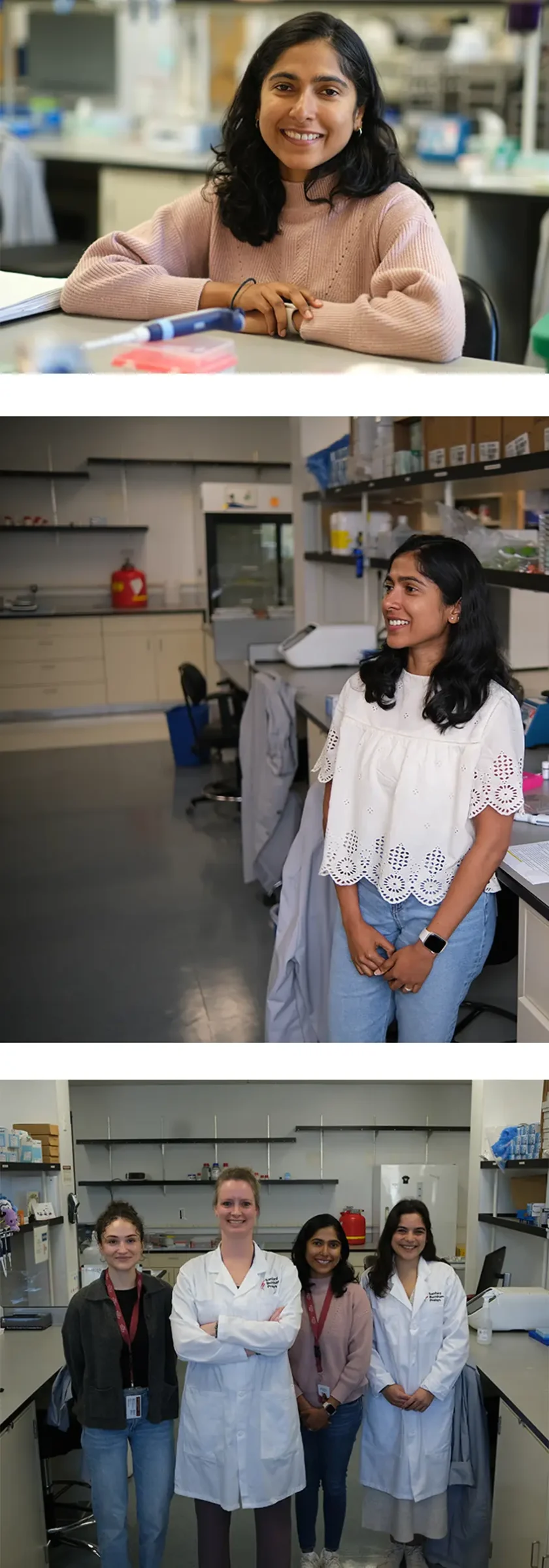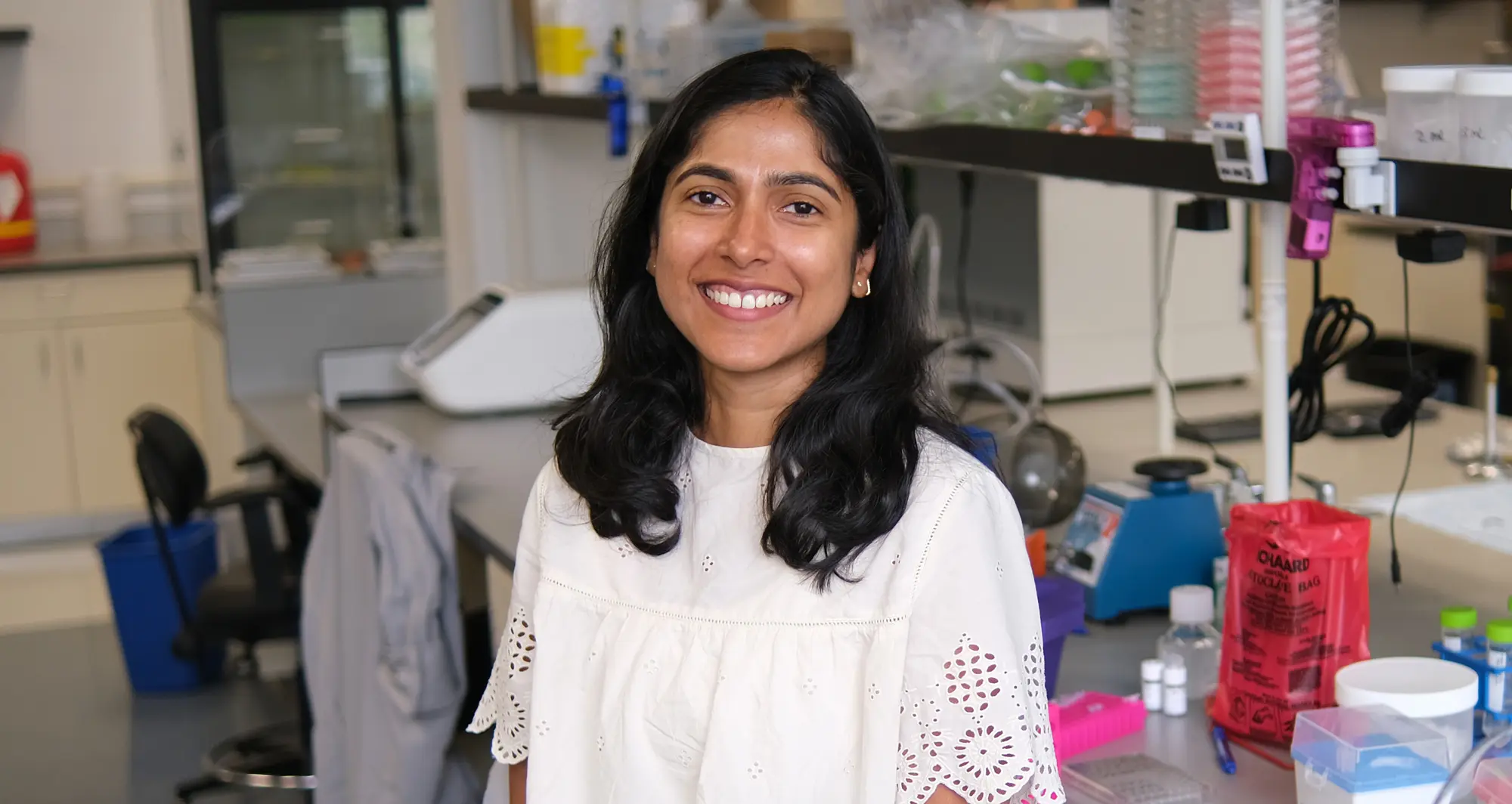Meet one of our early-career scientists at Sanford Burnham Prebys: Meena Sudhakaran, PhD, a postdoctoral researcher in the lab of Kelly Kersten, PhD. Sudhakaran studies cancer immunology to improve immunotherapy for breast cancer.
When and how did you become interested in science?
I was always curious as a child. When one of my family members was diagnosed with cancer, I grew up watching how it affects people. That made me really interested in how diseases work. I wanted to know the causes and the biological reasons beneath it.
What did you imagine you would be doing professionally, and how did it evolve?
When I was done with my master’s degree, I was sure I wanted to work in industry. I was determined to join a biopharma company where I could make medicines.
I worked as a scientist and as a senior scientist for three and a half years on a team at Biocon in India developing drugs for head and neck cancer. During my time in the company, I realized that I wanted to do a PhD to dive deeper into understanding the biology of cancer and how every cancer type is different.
During my PhD, I was introduced to immune cells and how immune cells affect tumor progression. I wanted to be in a cancer immunology lab for my postdoctoral training, so the Kersten Lab here was a perfect fit.
What are the key areas of research you focus on?
Breast cancer patients do not really respond to most immunotherapy drugs. We don’t yet know why they are ineffective.
Our immune system protects our bodies from pathogens, foreign particles or any abnormal cells like cancer. T cells, a type of immune cells in the tumor environment, can get activated and attack the tumor cells. But what often happens is that they become dysfunctional due to continuous exposure to the immunosuppressive environment and lose their ability to kill. Additionally, there are other immune cells such as macrophages that create a tumor-promoting environment.
Kelly previously showed that macrophages and T cells interact, creating a communication loop where the macrophages drive the T cells to exhaustion. The focus of my research is to understand how this interaction creates an anti-tumor immune response in breast cancer. This will help us get closer to the ultimate goal of making immunotherapy more effective in breast cancer patients.
What do you like about working here?
Kelly is a great mentor. She is very supportive. She is easy to approach, and our discussions are always encouraging yet stimulating. I believe it is really important for a successful lab that trainees feel comfortable discussing ideas and challenges openly.
Outside of my lab, there are lots of shared resources and training opportunities available. Everything is nearby and easy to access. People here are also very open to collaboration, which creates a strong and supportive research environment.

What motivates you about your research?
I love doing research! I like being in the lab, planning experiments and looking at the results.
It’s like solving a puzzle, so that keeps me excited.
What are your hopes for the next stage in your career?
I plan to return to industry and continue focusing on the translational side of biomedical research. My goal is to combine my experience in both industry and academia to help develop new medicines and improve treatments.
Although I am still early in my postdoctoral training, I can already see how much I’m learning. When I go back to industry, I’ll have stronger problem-solving skills, more knowledge, and more confidence in making decisions. I have definitely made progress, and I know that growth will continue and support me throughout my career.
Postdocs at Sanford Burnham Prebys are pushing the boundaries of science every day through curiosity, collaboration, and innovation. This series highlights their unique journeys, what inspires their work, and the impact they’re making across our labs.
